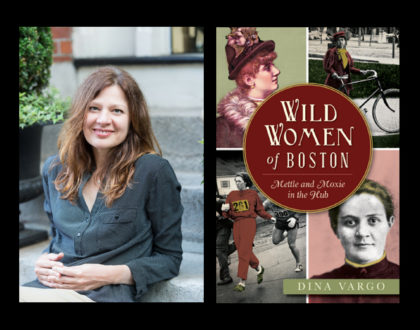Wild Women of Boston: The Unstoppable Sarah Remond

The Unstoppable Sarah Remond
by Dina Vargo
LeadBoston, class of 2011
Those familiar with the mission of YW Boston know that there is no shortage of women doing notable work in and around Boston – so many in fact that the YW has been hosting an Academy of Women Achievers luncheon every year since 1995. Boston can boast an extensive history and a long line of women achievers – consider any social reform movement from the 1820s to today and know that there were women, often unnamed and unheralded, behind it.
Had the Women Achievers luncheon existed many, many years ago, this woman would have no doubt been honored. She embodies all the attributes of an Unstoppable Woman today and one who’s mission was very much in line with the YWCA – to eliminate racism, empower women, and promote peace, justice, freedom, and dignity for all. Given her incredible achievements, you’ll be amazed to know that the subject of this post died a little over 100 years before the first luncheon was gathered. Her name is Sarah Parker Remond. She was an abolitionist and lecturer who traveled the globe in a time when women had limited ability to either speak publicly or travel broadly, particularly if they were women of color. She wasn’t afraid to back down from a battle – she sued the Howard Athenaeum, a theater in Boston, after management refused to recognize her ticket and forcibly removed her from her seat. She won. And just like Linda Brown, the other Unstoppable Woman featured in YW’s newsletter, she and her family were instrumental in the desegregation of the public schools in a town in Massachusetts.

Sarah Parker Remond was born in Salem, Massachusetts, in 1826. She was the daughter of free black parents who were in the catering and hairdressing businesses. Her parents took education very seriously, understanding its importance as a cornerstone of success. Sarah and her six brothers and sisters were lucky enough to have a fair number of books at home but Sarah’s parents knew it wasn’t enough. The children should attend school for better instruction and books.
Salem was a bit ahead of its time regarding schooling black children, but even that had its limits. In the early 1830s, black children could attend public schools with whites, but that situation did not last long. Sarah and her siblings attended a mixed primary school, but by the time they passed the entrance tests and were accepted to the secondary school, opinions were changing. While the people of Salem were supportive of educating blacks in the community (and would even pay taxes for it), they did not want that to come, as noted by the local news editorials, “at the expense of their children.” In an episode that is all too similar to the battles over segregated schools and busing policies in the 1970s, the Salem School Committee voted to set up a separate school for blacks. Separate, but not equal. The school would keep all black children together in a single room, and they’d be taught together regardless of age or ability. The Remond family protested this change of policy and left Salem altogether after their demands for equal educational opportunities were not met. They moved to Newport, Rhode Island, where the children attended an all-black private school.
By the 1840s, the Remonds moved back to Salem and became leaders in the local abolitionist movement as well as in changing public education policy. In 1844, Salem became the first municipality in Massachusetts to mandate racial integration of its public schools in no small part because of the Remonds’ advocacy.
Growing up in a family of reformers, both her brother and father were influential voices in the American and Massachusetts Anti-Slavery Societies, it was no surprise that Sarah chose the same path, and she excelled. She went on to become a leading public lecturer prior to and during the Civil War, traveling all over the northern United States and Europe to advocate for the freedom and equality of all races. After the Civil War, she returned to the United States from Britain and worked on behalf of freed slaves and in the women’s movement but never felt fully comfortable in the still segregated society. She returned to Britain where she graduated from Bedford College for Women. At 42 years of age, she left London to enter medical school in Italy. She practiced medicine and eventually got married, living out the rest of her life in Florence.
(Dina Vargo is a graduate of Lead Boston 2011. You can read more about Sarah Parker Remond in her book, Wild Women of Boston. Dina’s next book, Hidden History of Boston will be released on June 11, 2018.)
